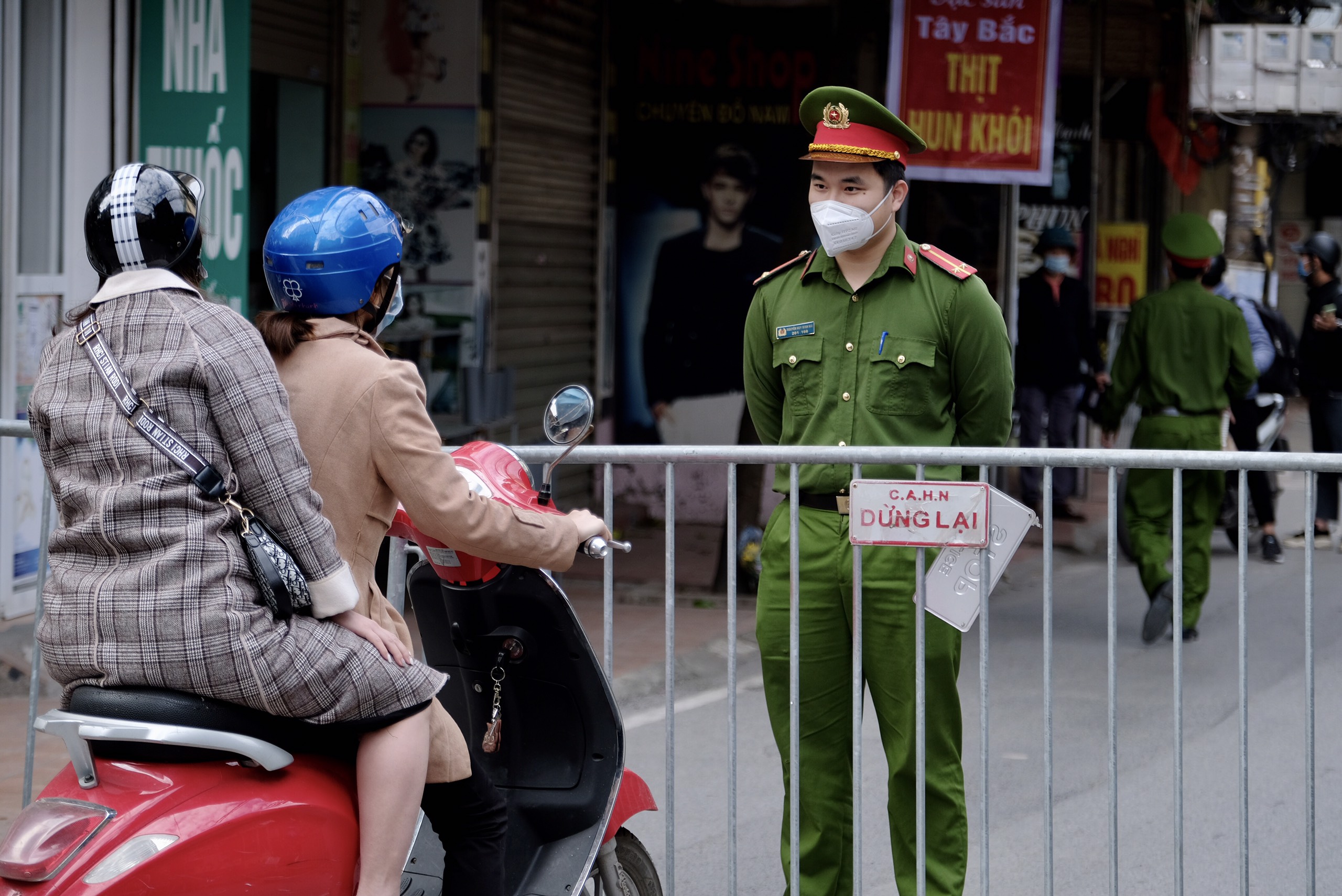The Hanoi administration has made a U-turn on the previous requirement for fully vaccinated arrivals from Ho Chi Minh City and other localities at high risk of COVID-19 transmission to self-quarantine for seven days.
The complete change came on Thursday evening, just less than two days after city authorities had announced the self-quarantine requirement on Tuesday night.
Tuesday night’s document had stipulated that arrivals from localities at high and very high risk, which are classified as ‘orange’ and ‘red zones,’ as well as places with a high number of infections such as Ho Chi Minh City, Binh Duong, Long An, and Dong Nai would have to be quarantined at home or accommodation establishments for seven days, even when they were fully vaccinated or recovered from COVID-19.
The regulation then caused mixed opinions.
Ass. Prof. Nguyen Huy Nga, former director of the General Department of Preventive Medicine under the health ministry, told news site VnExpress that Hanoi’s measure was not in line with the government’s policy of facilitating people’s travel and trade, and restoring the economy while adapting to the COVID-19 pandemic.
In addition to the ending of the self-quarantine regulation, other stringent measures to manage people coming from other provinces and cities have also been scrapped.
Hanoi authorities now require that people returning to the capital self-monitor their health at home or accommodation establishments for seven days even though they have been fully vaccinated or recovered from COVID-19.
They must seriously follow physical distancing recommendations, take a real-time RT-PCR test on the first day following their arrival in the capital, and report any unusual health signs to the nearest medical agency for monitoring and treatment.
Those who have just received one COVID-19 vaccine must self-quarantine for seven days, monitor their health for another week, and take real-time RT-PCR tests on the first and seventh days following their arrival in the capital.
Unvaccinated people will be isolated for 14 days upon their arrival in Hanoi, must self-monitor their health for the next 14 days, and take real-time RT-PCR tests on the first-, seventh-, and 14th-day milestones.
Hanoi has documented more than 7,000 local COVID-19 cases since the fourth outbreak hit Vietnam on April 27.
The Vietnamese capital has seen a surge in community-based infections over the past days, with health authorities logging 202 new cases on Thursday.
Nearly 99 percent of the city’s adult population have received at least one dose of COVID-19 vaccine while over 85 percent have been fully vaccinated, according to the national COVID-19 vaccination portal.
Vietnam has detected 1,065,469 COVID-19 infections since the pandemic first hit the country early last year, including a total of 1,060,394 community transmissions in its 63 provinces and cities since the fourth virus wave broke out.
More than 37.8 million people of the country’s 98-million population have been fully inoculated against the coronavirus.
The central government has relaxed pandemic control curbs over the past few weeks as transmissions have slowed down, partly due to larger vaccine coverage.
However, the number of infections has appeared to rebound in many locales in recent days.
Like us on Facebook or follow us on Twitter to get the latest news about Vietnam!






















































